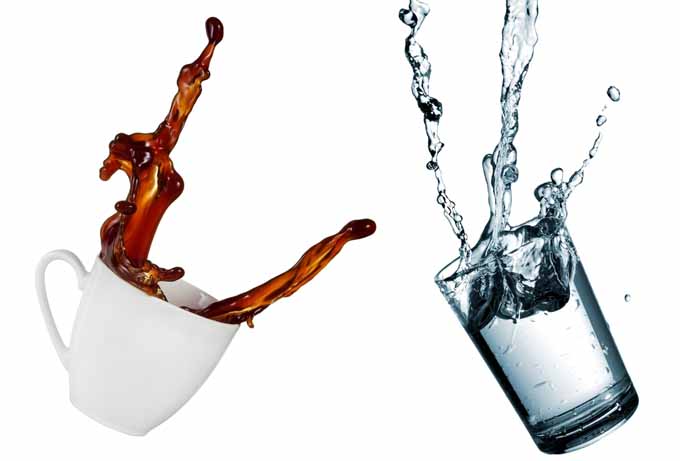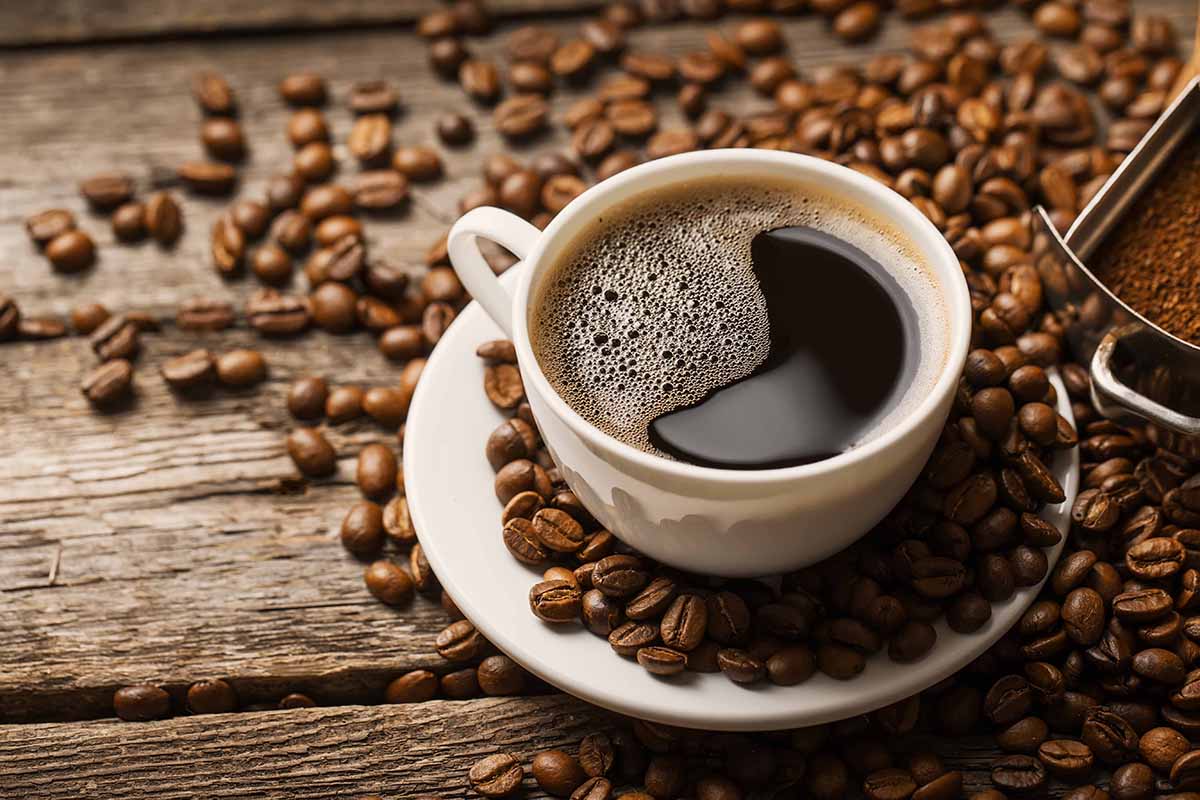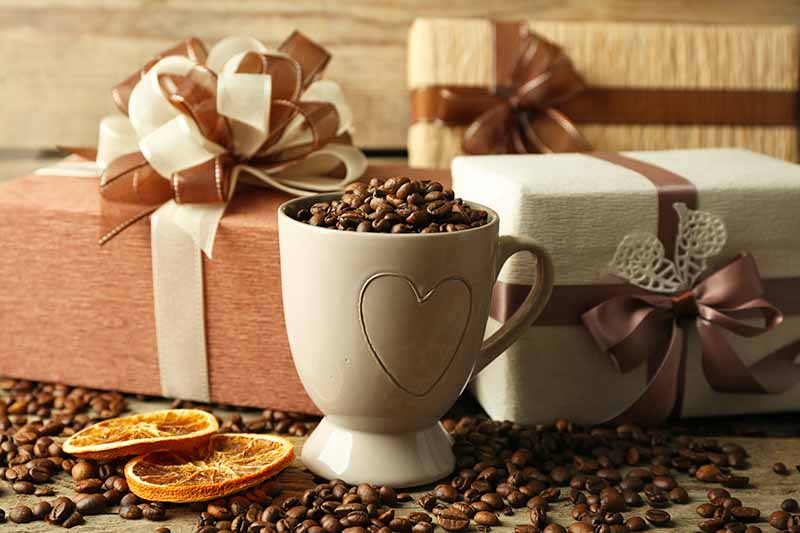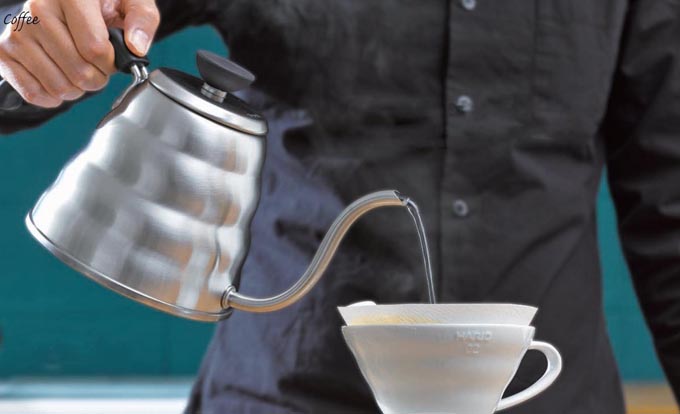Although the quality of your coffee beans has the biggest impact on your coffee’s flavor, your choice of water also makes a difference.

But is it worth pulling out the thermometer? Here’s the skinny.
Water Type
Water from your tap contains a lot more than just H2O. If your water is “hard,” it likely contains minerals like calcium and magnesium that can alter the taste of anything made with the water – like coffee.
Hard water can also cause a buildup on the inside of automatic drip coffee or espresso makers that can slow water flow and affect the flavor, so make sure you keep your machine clean!
Water that is too soft or heavily chlorinated can also change the taste, so bottled or filtered water is also an option if you live in an area with strongly treated water.
Just don’t brew with distilled water, which has all the minerals removed (as some are necessary to extract all the coffee’s flavor), or bottles labeled “mineral water,” which have a lot of extra minerals added.
Basically, if your tap water tastes good enough to drink straight, it’s probably good enough for your coffee. Otherwise, filter it or use a bottled water that you do like.
Water Temperature
Because most compounds dissolve better in hotter temperatures, hot water extracts flavors from coffee beans more quickly than cold water (cold-brewing methods can take up to 24 hours to reach full flavor!).
But over-extraction causes bitter flavors to leach into the water along with desired ones. Using too few beans, too long of an extraction time, or water that’s too hot can all cause over-extraction to take place.
The ideal brewing temperature lies between 195°F and 205°F. Most cheap coffee pots reach around 165°F, and this is when they are new and clean.
There are a few select coffee pots guaranteed to reach the critical 195-205°F range, notably those by Technivorm, Zojirushi, and certain models from Bunn.
It is also very important to be sure to brew a full pot, as most are configured to bring a full water reservoir to the right temperature.
For pour over or French press methods, stop the kettle just before it reaches a boil, or let it cool for a few seconds before pouring.
Regardless, it will cool quickly once poured, so even water that is at a full boil will be at the ideal temp only seconds after hitting the coffee.
More important is keeping your water hot enough during brewing – so preheat your brewing vessel and cup with boiling water and then empty it out before adding the grounds for best results.
Espresso machines operate on different principles, so for proper espresso brewing, check the manual that came with your machine.
Bottom Line?
The way you treat your water does matter, but if you start with freshly-ground, high-quality beans, it’s hard to go wrong. And when you’re trying to get moving first thing in the morning, sometimes simpler really is better!
Do you pay attention to water temperature when making your morning joe?
About Mike Quinn
Mike Quinn spent 20 years in the US Army and traveled extensively all over the world. As part of his military service, Mike sampled coffee and tea from all virtually every geographic region, from the beans from the plantation of an El Salvadorian Army Colonel to "Chi" in Iraq to Turkish Coffee in the Turkish Embassy in Kabul, Afghanistan. He spent nearly a decade in the Republic of Korea where he was exposed to all forms of traditional teas. Mike formerly owned and operated Cup And Brew, an online espresso and coffee equipment retail operation.




This is actually something I’ve been thinking about a lot lately. My coffee has been sub-par, and I’ve wondered if my tap water was to blame. The water is very hard here, and I’ve been considering using bottled water. I’m glad you mentioned not using distilled water, which I would have thought would be perfect. After reading this, I’m headed down to run a cleaning cycle on my machine, and set up the bottled water for use tomorrow, and I’m looking forward to a better tasting cup!
Cleaning is an underated necessity. It does wonders to improve the taste.
I never knew that water “good” water is so important for making coffee. I always thought that the only important thing is making sure you have a good coffee maker and beans. Would using one of those Brita filters help with the taste of coffee? It says that chlorine and some stuff from tap water is bad for coffee flavors, and I think Brita filters can remove it. I guess it doesn’t really deal with the issue of soft/hard water though.
Well I am not sure if I need to be embarrassed or not. I have been drinking coffee my whole life, and making it at home too of course, and I can honestly say I have never really paid much attention to the water itself. I am okay with my coffee, so it is not like I need to change anything, but now I am just really really curious if I have been missing something or not. I guess there is only one way to find out, so thanks for sharing.